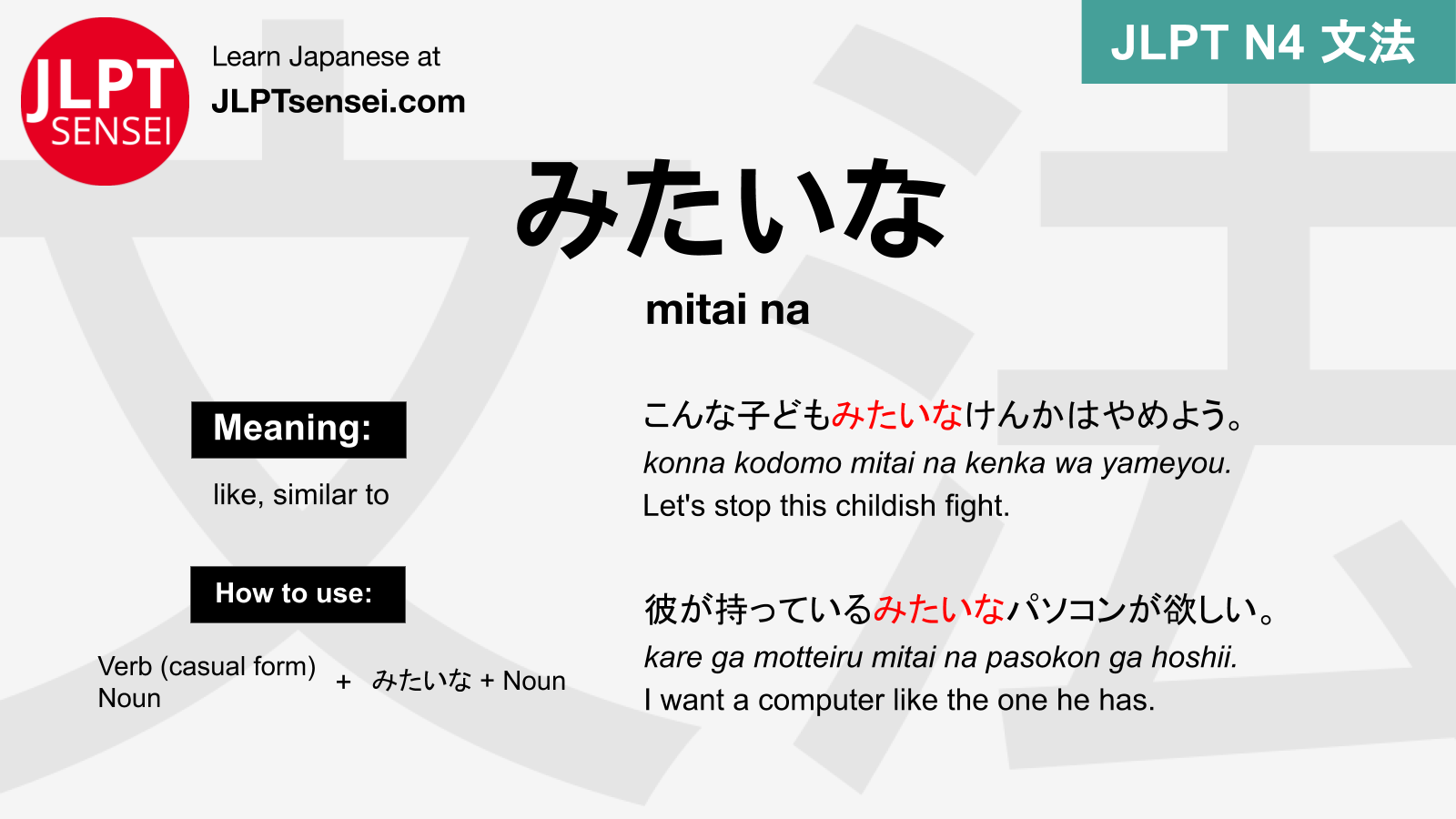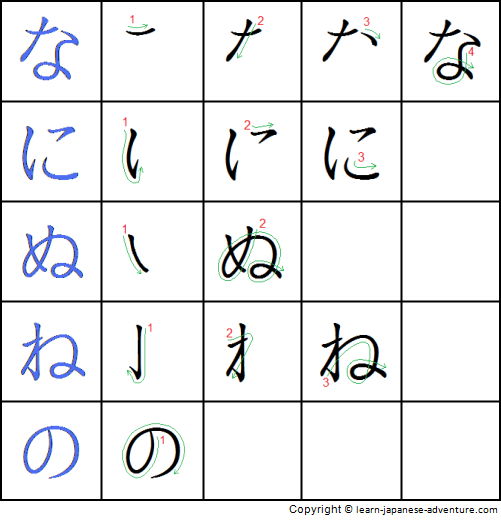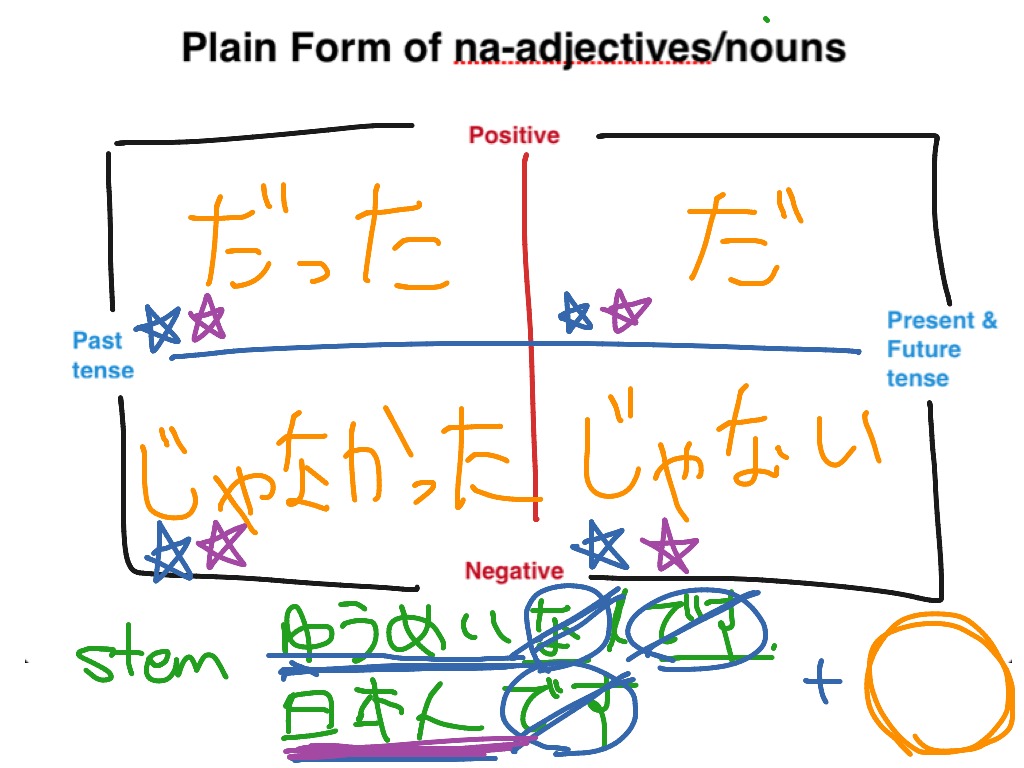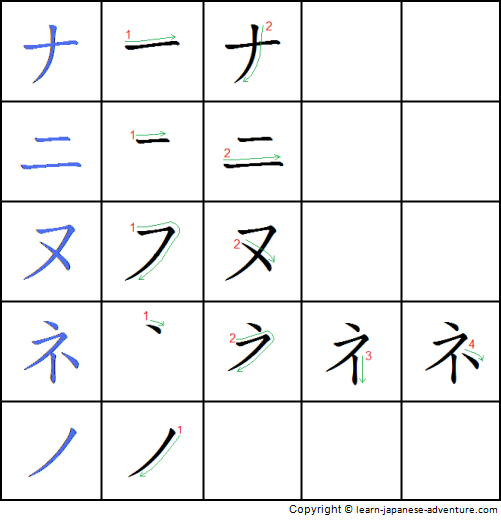
JLPT N4 Grammar な (na) Meaning
Verb (dictionary form) な. Learn Japanese grammar: な (na). Meaning: don't ~ (order somebody to not do something). Click the image to download the flashcard. Download all N4 grammar flashcards. Download our complete. JLPT N4 Grammar Master E-book. Access ALL extra downloads, ebooks, and study guides by supporting JLPT Sensei on Patreon.

Learn Hiragana The Ultimate Guide.
Japanese NA in hiragana: な East Asia Student 2012年2月9日 The syllable 'na' in hiragana is written な. な 'na' hiragana stroke order. な has four strokes: A short horizontal stroke from left to right. A vertical stroke that cuts down through the first. A very short stroke down to the right, which hooks slightly.

Kanji Lessons【14】How to write "女"(onna) in kanji. YouTube
Japanese adjectives are categorized into two: な-adjectives and い-adjectives. Their main function is to describe nouns, but these adjectives can also be transformed into nouns themselves. The easiest way to separate な-adjectives and い-adjectives is by checking the adjective's ending. More precisely, if the word ends with い or not.

JLPT N4 Grammar みたいな (mitai na) Meaning
Learn Japanese grammar: なあ (naa). Meaning: a sentence-ending particle that can used to express the following: ask for confirmation from listener (…right?) express hope (it'd be nice if…) express admiration (wow…) express uncertainty (I wonder…) add general emphasis to what is being said

Na Japanese
Na (hiragana: な, katakana: ナ) is one of the Japanese kana, which each represent one mora.The hiragana な is made in four strokes, the katakana ナ two. Both represent [na].な and ナ originate from the man'yōgana 奈. な is used as part of the okurigana for the plain negative forms of Japanese verbs, and several negative forms of adjectives.

How to write 名 (na) How to Write Kanji 54 YouTube
1) When you express your opinion or feeling. (Both women and men use). In this usage, we tend to stretch the sound なあ ( = naa)/ (more colloquial way to write) な~ ( = naa) You use the suffix ね ( = ne) when you ask for agreement from a listener. Ex. これ、おいしいね。 = Kore, oishii ne. = This is delicious, isn't it?

Write Japanese Hiragana
となり の 犬 tonari no inu the dog next door; next door's dog An example of an - na adjective is げんき genki (healthy, vigorous, energetic…) 元気 げんき な 犬 いぬ genki na inu an energetic dog You only use the な na ending when placed before nouns. Therefore, some words will simply have to be memorized as - na adjectives.

Na Adjectives Japanese Japan 24 Hours
Japan View All Japan More Series Travel Reviews Interviews Podcast Search な-Adjectives Adjective Form な-adjectives are one type of adjective in Japanese. Their main function is to describe nouns, but many can function as nouns themselves. Table of Contents The Basics Present Tense Past Tense Negative な-adjectives

How to Pronounce Na Ni Nu Ne No Japanese Pronunciation YouTube
1. Two main types of adjectives In this post, we will introduce the two main types of adjectives in Japanese and explain how to tell which adjective is which type. If you need just a quick review, please scroll down to the Summary Table with a blue title in Section 8. In Japanese, we use an adjective with mood and tense.

Learning Japanese Katakana Letter ナ
JLPT N5 Na-Adjectives List. This is a Japanese vocabulary list of な-adjective(s) you need to know in order to pass the JLPT N5. Click on any of the words below to see the full vocabulary lesson, including example sentences. References: Full JLPT N5 vocabulary list. JLPT N5 Study Guide. N5 い-adjective list. N5 Adjective list (all types).

Plain form of naadjectives/nouns Japanese Grammar, Japanese ShowMe
な or の: The Middle of the Spectrum 〜な気分 For When You're in a Mood For Cravings For Self Expression For Places and Activities 終わりな気分 Prerequisites: This article assumes you already know hiragana and katakana. If you need to brush up, have a look at our Ultimate Hiragana Guide and Ultimate Katakana Guide.

hiraganaletterna Japanese Language
Book. (a noun.) yasui hon 安い本 Cheap book. ( yasui is an i -adjective .) kirei na hon 綺麗 な 本 Pretty book. ( kirei is a na -adjective.) When an adjective is specifying a noun like above—the "pretty book," only the pretty one, not the ugly ones—that's called an attributive adjective.

Na Adjectives Japanese Japan 24 Hours
な な U+306A, な HIRAGANA LETTER NA ← ど [U+3069] Hiragana に → [U+306B] Contents 1 Japanese 1.1 Pronunciation 1.2 Etymology 1 1.2.1 Syllable 1.2.1.1 See also 1.3 Etymology 2 1.3.1 Interjection 1.3.2 Particle 1.3.2.1 Usage notes 1.4 Etymology 3 1.4.1 Particle 1.4.1.1 Usage notes 1.4.1.2 Descendants 1.5 Etymology 4 1.5.1 Particle 1.5.1.1 Usage notes

Writing Japanese Katakana
Neutral 〜な for Indirectly Referring to Past Speech The Basics Without any softening elements, 〜な is a very strong way to tell someone not to do something. For example, if a police officer spots a thief and orders him not to move, they may use 〜な to give him a stern command, such as: 動く な ! Don't move!

JLPT N5 Grammar なあ/な (naa /na) particle meaning
There are two types of adjectives in Japanese: i-adjectives and na-adjectives. The type of adjective is determined by its ending or—more precisely—the grammar that is required to join the adjective to nouns or transform the adjective into an adverb.

Na Adjectives Japanese Japan 24 Hours
1 Answer Sorted by: 48 な at the end of a sentence usually gives the sentence one of the following five meanings. 1. Seeking confirmation This usage is probably the most common.